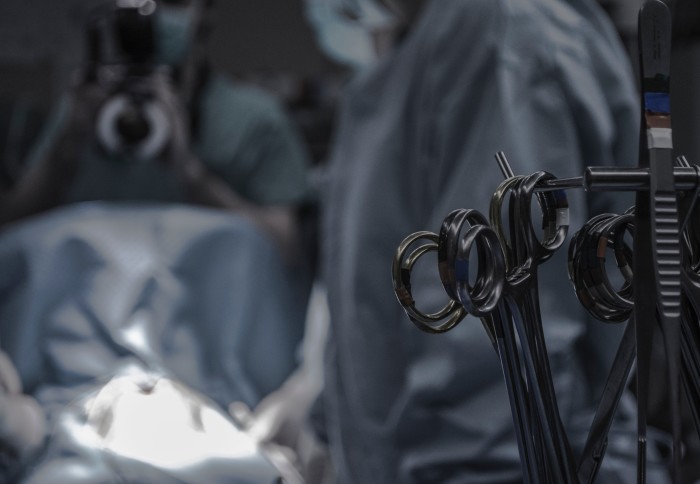Pooling waiting lists between hospitals could ease surgery backlog, study shows

New research suggests centralising waiting lists and expanding surgical networks could help England’s hospitals manage the current surgery backlog.
It finds that people awaiting low-risk surgery delayed by the COVID-19 pandemic could benefit from planned procedures being distributed between neighbouring surgical centres. As a result, people may be able to have their operation sooner and have more choice over where their surgery takes place. The research, recently published in BMJ Open, was led by Imperial College London’s Institute of Global Health Innovation (IGHI).
“Our research creates a practical solution to a pressing problem that is not going to go away any time soon as we move into 2021, with waiting lists only expected to get longer,” said IGHI Sir Henry Wellcome Postdoctoral Fellow Dr Jonathan Clarke, who is lead author of the study.
The pandemic caused many hospitals across England to halt elective surgery to accommodate the surge in COVID-19 cases. In June 2020, it was estimated that NHS waiting lists for routine operations were likely to hit 10 million by the end of the year.
To understand if pooling surgery waiting lists could address the problem, IGHI researchers and colleagues from Imperial’s Department of Surgery and Cancer assessed data on 7.8 million planned procedures between April 2017 and March 2018.
Identifying surgical communities
The team analysed the list of patients in this data and categorised them as low, medium or high risk based on their age and Charlson Comorbidity Index. The index predicts a person’s risk of death upon hospitalisation based on other clinical conditions they have.
The study also evaluated the complexity of the procedures and found that half of the operations in the data set were common surgical procedures. 61.7% of these involved ‘low risk’ patients’.
To map out where and how far people were travelling to have their procedures, the team used the data to understand which hospitals were being accessed for their operations. The research suggested that there are natural surgical communities across England where people commonly travel to for their care.
People were found to not usually have to make long journeys to access surgical care, travelling an average of 11 kilometres.
“For patients who are low risk and having simpler operations, there’s an opportunity for people to travel a little further to a hospital that can provide the care, when their nearby hospital might be struggling with COVID patients,” said Dr Clarke.
Creating resilience in surgical care
“It’s vital that planned surgical care continues throughout winter. Despite COVID’s high prevalence disrupting hospital services, it will be hard to make up the backlog of surgeries if services stop." Dr Jonathan Clarke IGHI Sir Henry Wellcome Postdoctoral Fellow
The researchers were motivated to carry out this research due to the pressure the growing backlog of planned operations is having on England’s hospitals.
“Our latest research shows that wait lists could be eased if some hospitals were to widen access to services by sharing patients, which would require greater collaboration between local hospitals.”
Through this more collaborative approach, hospitals could have better resilience in tackling wait lists and provide care quicker, the authors suggest.
The beginning of a roadmap
The researchers are aware of some the challenges of the recommended approach. Asking people to travel further than usual for their operation means an increase in travel costs. There are also uncertainties on how trusts’ payment would be resolved if procedures are shared among neighbouring hospitals
The researchers address some of these barriers in the paper suggesting that government involvement would be necessary to cover costs of further travel. While there are a number of issues to be considered, Dr Clarke believes the research is a start to discussing and addressing an important issue:
“This is the first step to a solution. We hope this will provide a road map to easing the burden on surgical services.”
Article text (excluding photos or graphics) © Imperial College London.
Photos and graphics subject to third party copyright used with permission or © Imperial College London.
Reporter
Nikita Rathod
Communications Division